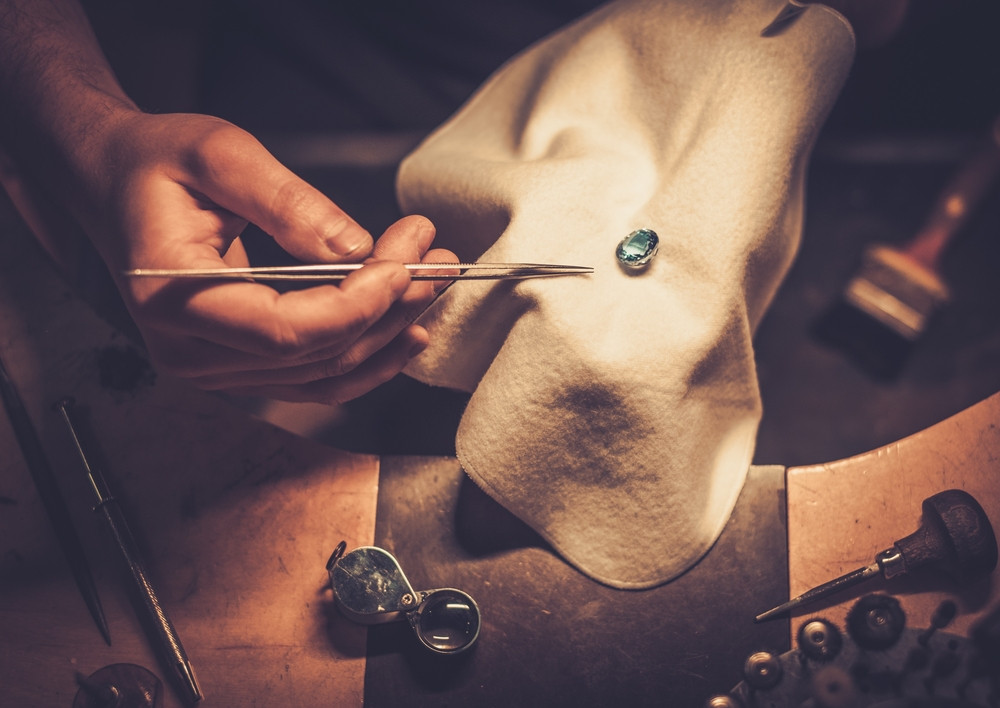Popular Reads
Top Results
Can't find what you're looking for?
View all search resultsPopular Reads
Top Results
Can't find what you're looking for?
View all search resultsJewelry brands urged to do more to fight gold, diamond mining abuses
As jewelry sales get a pre-Christmas boost, consumers were warned that major brands are still not doing enough to combat human rights and environmental abuses in their gold and diamond supply chains.
Change text size
Gift Premium Articles
to Anyone
A
s jewelry sales get a pre-Christmas boost, consumers were warned on Tuesday that major brands are still not doing enough to combat human rights and environmental abuses in their gold and diamond supply chains.
In a survey of 15 major jewelry companies, Human Rights Watch found few had taken concrete steps to protect workers' rights or assess the impact of COVID-19 as the pandemic fuels labor abuses in mines around the world, a report showed.
The advocacy group did, however, find improvements since it conducted the same survey two years ago.
"Many jewelry companies have made progress... but consumers still don't have adequate assurances that their jewelry comes free of human rights abuses," said Juliane Kippenberg, associate child rights director at Human Rights Watch.
"The COVID-19 pandemic demands even more vigilance from jewelry companies to identify and respond to human rights abuses," Kippenberg said in a statement.
According to the United Nations Guiding Principles on Business and Human Rights, jewelry companies are obliged to monitor and correct human and environmental rights abuse in their supply chains.
The 15 companies surveyed, which generate more than $40 billion in annual revenue, included big brands such as Tiffany & Co and Pandora A/S, both of which were rated "strong" for their efforts on ethical sourcing.
Since the COVID-19 crisis began, rights groups have reported a worsening of working conditions for both formal and informal miners.
Some lost their income when mines were closed due to lockdowns, while others were forced to work and live together in cramped conditions - making social distancing impossible, Human Rights Watch said, detailing different abuses around the world.
Citing past investigations, the report spotlighted torture by syndicates controlling illegal gold mines in Venezuela, as well as child labor and mercury poisoning in small-scale gold mining Ghana, Mali, the Philippines, and Tanzania.
Read also: The ethical gold rush: Gilded age for guilt-free jewelry
'Maintain standards'
The advocacy group based its ranking on the sourcing practice information submitted by the 15 companies, or on what was publicly available.
Pandora, which got a higher rating than it did two years ago, told the Thomson Reuters Foundation it aimed to use only recycled silver and gold by 2025, and both the Danish firm and Tiffany & Co said they were proud of their progress.
Human Rights Watch's report classified Bulgari, Cartier and Signet Jewelers Limited as "moderate" for their efforts to responsibly source gold and diamonds.
Signet responded by saying it was "dedicated to the continuous improvement in the integrity of the global jewelry supply chain".
Boodles, Chopard and Harry Winston were ranked "fair" though they all got a higher score than in the 2018 report.
While the survey recognized improvements at Indian jewelry maker Tanishq, it was ranked "weak" along with Chow Tai Fook and Germany's Christ.
Tanishq said it did not agree with the ratings in the report, arguing they did not reflect "on-ground issues in the supply chain", while Chow Tai Fook said it appreciated "valuable recommendations to the industry".
The Hong Kong-based firm is investing in blockchain technology for "digital mine-to-consumer records of diamonds", it added.
There was not enough information available to rank Kalyan, Mikimoto, Rolex and TBZ, Human Rights Watch said.
The other brands included in the survey did not immediately reply to a request for comment.
Responding to Tuesday's report, the Responsible Jewellery Council - which sets ethical standards for the jewelry and watch industry - said it was working to address the pandemic's impact on the sector.
"People across the world are impacted in multiple ways by the COVID virus. The jewelry industry is no exception. It is vital to maintain standards in these challenging times," the council said in emailed comments.











